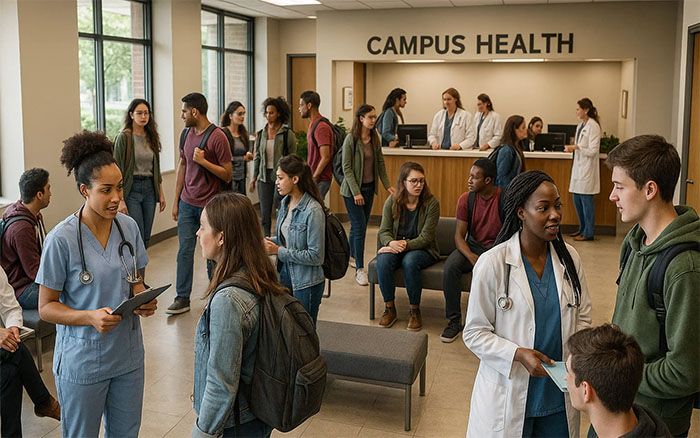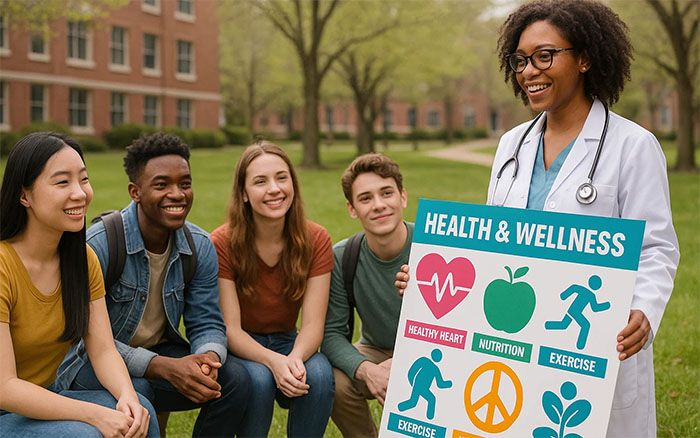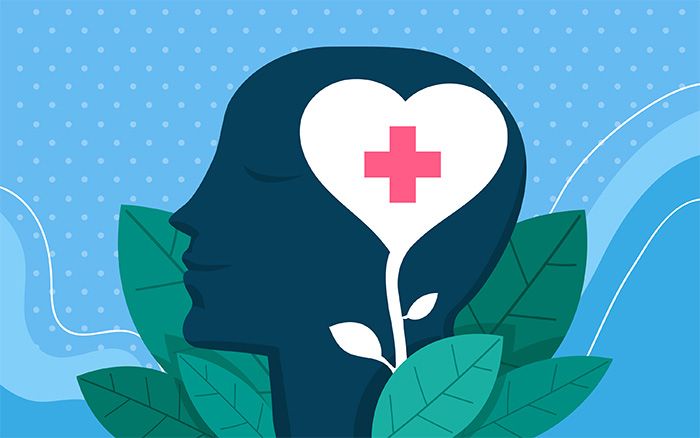Creating Inclusive Health and Counseling Centers
Your Guide to Best Practices
In recent years, there has been a growing recognition of the importance of creating inclusive health and counseling centers for LGBTQIA+ students. Ensuring that all students, regardless of their sexual orientation or gender identity, feel safe and supported is crucial for their well-being and academic success.
Let’s walk through some best practices that will make your health and counseling centers more inclusive for LGBTQIA+ students. Plus, continue reading to learn what top schools like Rutgers, Tufts, and Ohio State are doing to support their campus communities.
1. Staff Training and Education
Provide ongoing training for healthcare providers and counseling staff on LGBTQIA+ health concerns and challenges. This includes understanding the specific mental health needs of LGBTQIA+ students, as well as using inclusive language and respecting students’ preferred names and pronouns. Staff should be well-versed in cultural competency to create an environment where LGBTQIA+ students feel seen and respected.
2. Inclusive Policies and Practices
Work with campus leadership to develop and implement policies that explicitly prohibit discrimination based on sexual orientation and gender identity. Ensure that these policies are clearly communicated to both staff and students. Incorporate inclusive practices such as providing gender-neutral bathrooms within your clinics and offering a range of options on intake forms to capture a student’s gender identity and preferred name. Make sure this information is prominently displayed in your EHR and scheduling systems so that staff can refer to a student the right way, the first time.
3. Visible Support and Resources
Display LGBTQIA+ affirming materials, such as posters, brochures, and pride flags in health and counseling centers. This visible support can help create a welcoming atmosphere. Additionally, provide resources and referrals to LGBTQIA+-friendly healthcare providers, therapists, and support groups both on-campus and in your local community.
Note: Unique strategies for promoting resources to students can be found here.
4. Confidentiality and Privacy
Ensure that confidentiality and privacy are prioritized, as many students may be concerned about being outed or facing discrimination. Reassure students that their information will be kept private and that their healthcare needs will be handled with sensitivity and respect.
5. Student Feedback and Involvement
Engage LGBTQIA+ students in the development and evaluation of health and counseling services. Solicit feedback through surveys, focus groups, and advisory committees to ensure that services are meeting their needs and to identify areas for improvement.
6. Comprehensive Coverage
Advocate for student health insurance plans to include comprehensive coverage for LGBTQIA+ healthcare needs. This should encompass routine care, mental health services, and specific needs such as hormone replacement therapy, gender-affirming surgeries, and other gender-affirming treatments. Ensuring that insurance plans do not exclude this type of care is critical for the health and well-being of LGBTQIA+ students.
7. Policy Guidelines
Refer to established guidelines and best practices, such as those provided by the American College Health Association (ACHA). ACHA provides a Trans-Inclusive College Health Programs guide for creating inclusive healthcare environments, for example. This guide provides recommendations on medical records, health informatics, mental health services, and continuing education and training.
8. Equitable Access
Promote equitable access to well-being services to ensure that all students can achieve their full academic potential. Addressing chronic or acute physical and mental health needs promptly can meaningfully contribute to their success on campus.
Real-World Examples and Best Practices
Drawing inspiration from successful initiatives in higher education, we can create more inclusive health and counseling centers.
Here are some examples of how schools across the country are prioritizing LGBTQIA+ health and wellness:
- Rutgers University offers comprehensive care for transgender and gender non-binary students through the Rutgers Center for Transgender Health. This center provides medical counseling, hormone therapy, hormone-level monitoring, and assistance with referrals to external providers such as surgeons and endocrinologists. Additionally, they help students with signing official name-change documents.
Health services include continuous hormone therapy, laboratory testing, genital and chest reconstruction surgery, psychotherapy, and surgery to change secondary sex characteristics. Rutgers Student Health ensures gender-affirming care for all registered students, regardless of their insurance coverage, including those on the Student Health Insurance Plan (SHIP).
Counseling services include individual and group counseling, crisis management, substance abuse assessment and treatment, and psychiatric services. The center is dedicated to improving transgender and non-binary health through evidence-based care, research, and education, aiming to create a welcoming and supportive environment throughout the gender affirmation process.
- Tufts University offers comprehensive, inclusive health services for LGBTQIA+ students, including specialized trans health care, hormone treatment, and gender-affirming surgery information. Students can self-identify their name, gender identity, and pronouns in records.
Gender-affirming hormone Treatment (GAHT) and surgeries follow World Professional Association of Transgender Health (WPATH) guidelines, with support for medication and ongoing care. Insurance and billing assistance is available, and mental health support is provided throughout the process. The university also offers additional resources for ongoing support and name changes.
- Ohio State University offers extensive mental health support for LGBTQIA+ students through one-on-one counseling, drop-in consultations, and specialized workshops and support groups. Several therapists specialize in LGBTQ+ concerns. CCS supports groups for queer undergraduate and graduate students, plus transgender/non-binary students.
The Gender Affirming Primary Care Clinic offers transition-related care, primary care, STI testing, HIV PrEP, vaccinations, hormone therapy, and referrals for gender-affirming surgery. The clinic emphasizes teaching future medical professionals to provide affirming care to the transgender community.
Key Takeaways
Creating inclusive health and counseling centers for LGBTQIA+ students is not just about meeting regulatory requirements; it is about fostering an environment where all students can thrive.
By implementing practical steps such as staff training, inclusive clinic policies, and comprehensive healthcare coverage, institutions can ensure that LGBTQIA+ students feel supported and valued. This, in turn, contributes to their academic success and overall well-being.
As we move forward, continuous engagement with the LGBTQIA+ community will be essential in refining these practices and addressing emerging needs.



















